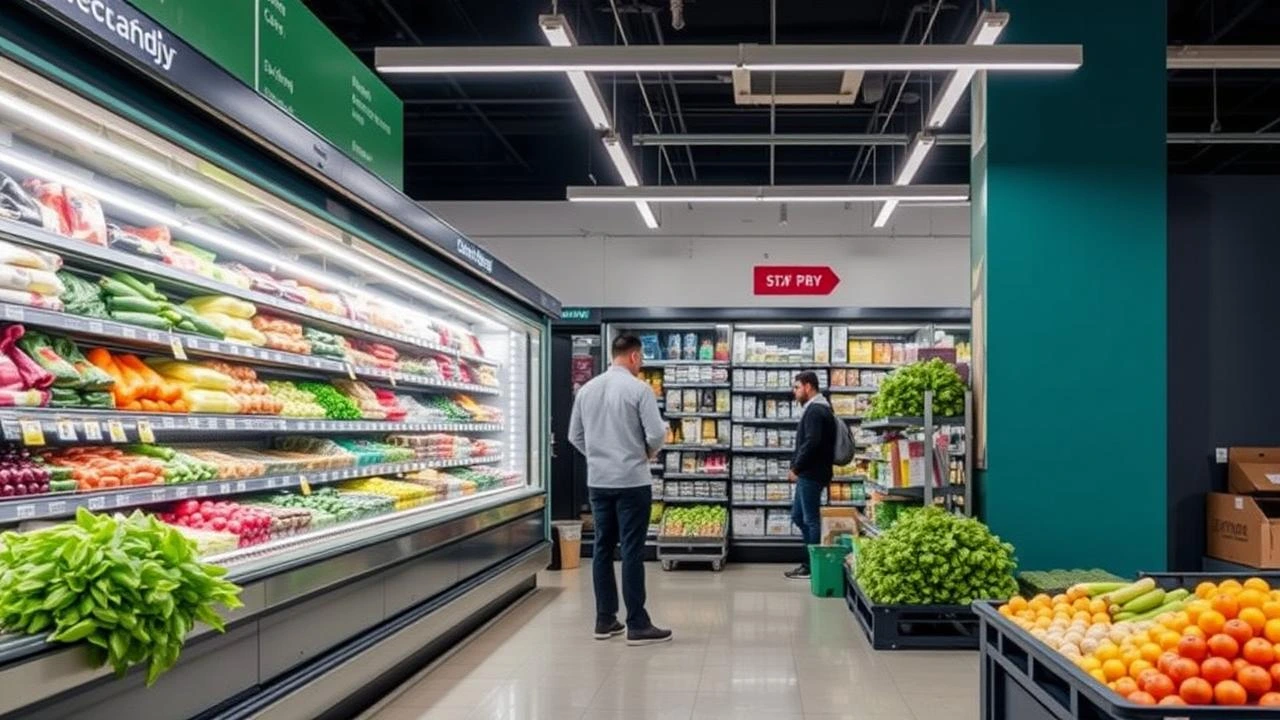In the wake of rising concerns about food security and affordability, many countries are turning to the idea of government-owned grocery stores as a potential solution. However, while this approach may seem promising on the surface, it is not without its drawbacks and limitations. In this article, we will explore the reasons why government-owned grocery stores aren’t the solution to the issues of food security and affordability.
The Rise of Government-Owned Grocery Stores
Government-owned grocery stores are not a new concept. In fact, they have been around for decades, with countries like Sweden and Norway having established them in the 1930s and 1940s, respectively. In recent years, the idea has gained renewed interest, particularly in light of the COVID-19 pandemic, which has exposed the fragility of global food supply chains and heightened concerns about food security.
The appeal of government-owned grocery stores lies in their potential to address some of the most pressing issues facing the food industry today. These stores could, in theory, provide consumers with affordable, high-quality food while also ensuring a more stable and resilient food supply chain. Additionally, they could help to promote local agriculture and reduce the environmental impact of food transportation.
The Limitations of Government-Owned Grocery Stores
While the idea of government-owned grocery stores may be appealing, there are several reasons why this approach may not be the most effective solution to the issues of food security and affordability:
- Cost and sustainability: Establishing and maintaining government-owned grocery stores can be expensive, and the costs can be difficult to sustain over time. These costs include the construction and maintenance of store facilities, the purchase of inventory, and the salaries of store employees. In many cases, the financial burden of these costs may be too great for governments to bear, particularly in countries with limited resources and budget constraints.
- Inefficient management: Government-owned grocery stores may not be as efficient as privately-owned stores, as they are often subject to bureaucratic processes and political interference. This can lead to inefficiencies in inventory management, pricing, and customer service, which can ultimately undermine the stores’ ability to provide affordable, high-quality food to consumers.
- Lack of competition: Government-owned grocery stores may reduce competition in the food retail sector, which could lead to higher prices and lower quality for consumers. When private companies are forced to compete with government-owned stores, they may be less likely to invest in innovation, product quality, and customer service, as they may perceive government-owned stores as unfair competition.
- Limited product selection: Government-owned grocery stores may not be able to offer the same variety of products as privately-owned stores, particularly in terms of specialty or imported goods. This could be a significant drawback for consumers who are looking for a diverse selection of products to choose from.
Alternative Solutions to Food Security and Affordability
Instead of relying on government-owned grocery stores, there are several alternative solutions that could help to address the issues of food security and affordability:
- Supporting local agriculture: Encouraging the growth of local agriculture can help to reduce the environmental impact of food transportation and promote food security by ensuring a more stable and resilient food supply chain. Governments can support local farmers by providing financial assistance, infrastructure improvements, and technical expertise.
- Promoting food education: Educating consumers about the importance of a healthy, balanced diet can help to reduce the demand for processed and unhealthy foods, which are often more expensive and less nutritious than fresh, whole foods. Governments can invest in food education programs to help consumers make more informed choices about the food they eat.
- Encouraging private sector innovation: Encouraging private companies to invest in innovation, product quality, and customer service can help to create a more competitive and efficient food retail sector. Governments can support private sector innovation by providing tax incentives, grants, and other forms of financial assistance.
- Addressing the root causes of food insecurity: Finally, addressing the root causes of food insecurity, such as poverty, inequality, and lack of access to education and healthcare, is essential for ensuring long-term food security and affordability. Governments can invest in social programs, infrastructure improvements, and economic development initiatives to help create a more equitable and sustainable food system.
Conclusion
While the idea of government-owned grocery stores may seem promising on the surface, it is not without its limitations and drawbacks. Instead of relying on this approach, governments should consider alternative solutions that can help to address the issues of food security and affordability more effectively. By supporting local agriculture, promoting food education, encouraging private sector innovation, and addressing the root causes of food insecurity, governments can help to create a more sustainable and equitable food system for all.
FAQs
Q: What are government-owned grocery stores?
A: Government-owned grocery stores are retail stores that are owned and operated by the government. These stores are typically established to provide consumers with affordable, high-quality food while also ensuring a more stable and resilient food supply chain.
Q: Why are some countries considering establishing government-owned grocery stores?
A: The COVID-19 pandemic has exposed the fragility of global food supply chains and heightened concerns about food security. In response, some countries are considering establishing government-owned grocery stores as a potential solution to the issues of food security and affordability.
Q: What are the limitations of government-owned grocery stores?
A: Government-owned grocery stores can be expensive to establish and maintain, and they may not be as efficient as privately-owned stores. Additionally, they may reduce competition in the food retail sector, limit product selection, and be subject to bureaucratic processes and political interference.
Q: What are some alternative solutions to food security and affordability?
A: Alternative solutions to food security and affordability include supporting local agriculture, promoting food education, encouraging private sector innovation, and addressing the root causes of food insecurity.
Q: How can governments support local agriculture?
A: Governments can support local agriculture by providing financial assistance, infrastructure improvements, and technical expertise to farmers. This can help to reduce the environmental impact of food transportation and promote food security by ensuring a more stable and resilient food supply chain.
Government-Owned Grocery Stores Aren’t the Solution






